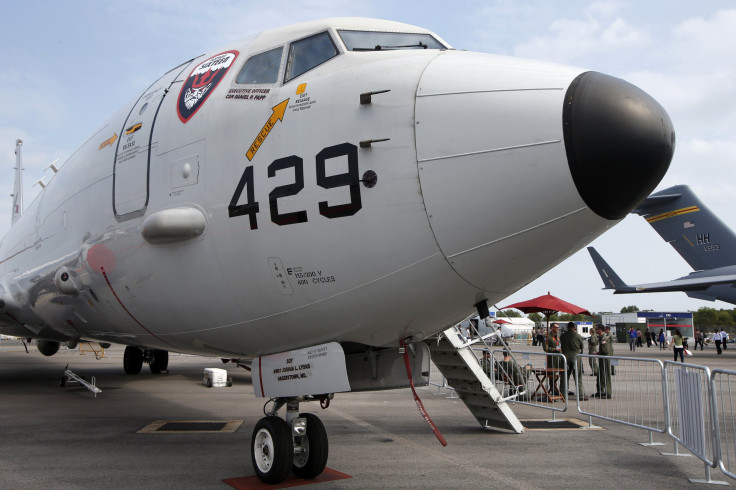China Says US P-8 Poseidon Spy Plane’s Deployment In Singapore Amid South China Sea Tensions Aimed At Militarizing Region

America’s move to deploy the P-8 Poseidon spy plane in Singapore amid South China Sea tensions was aimed at militarizing the area, China’s foreign ministry said, according to reports on Wednesday. The United States agreed Monday to deploy the surveillance plane for the first time in Singapore for “maritime security efforts.”
China’s foreign ministry said that the plane’s deployment did not serve the interests of the countries in the region, Xinhua News Agency reported.
"I think this kind of increase in military deployment by the United States and the push for regional militarization does not fit with the joint long-term interests of the countries in this region," Hua Chunying, a spokesman for the foreign ministry, reportedly said. "We also hope the relevant sides will take more actions that would be really beneficial to strengthening mutual trust among regional countries, actions that would benefit the protection of regional peace and development," he added.
China’s defense ministry also issued a statement late Tuesday expressing concern over regional stability and said that the Asian nation’s military was closely tracking the U.S.-Singapore deal.
"We are paying close attention to how the relevant situation develops, and hope bilateral defense cooperation between the relevant countries is beneficial to regional peace and stability and not the opposite," the defense ministry said, according to Reuters.
The P-8 Poseidon’s deployment deal was reached after U.S. Secretary of Defense Ashton Carter met Ng Eng Hen, his Singaporean counterpart, in Washington on Monday. The deployment in Singapore will be based for a week, the U.S. Department of Defense said.
Beijing claims most of the South China Sea, causing territorial disputes with several regional countries, including Vietnam, the Philippines and Malaysia, which have overlapping claims. China has also been involved in a separate dispute with Japan over islands in the East China Sea.
In November, China accused the U.S. of making “political provocation” by patrolling the South China Sea, and said that Beijing will continue to build military facilities on artificial islands it was constructing. In October, the U.S. angered Beijing by sending a guided missile destroyer within territorial waters claimed by China. China's foreign ministry said at the time that the country expressed its "strong discontent" and "resolute opposition" to the U.S. action, which it argued threatened the sovereignty and security interests of China.
© Copyright IBTimes 2025. All rights reserved.






















